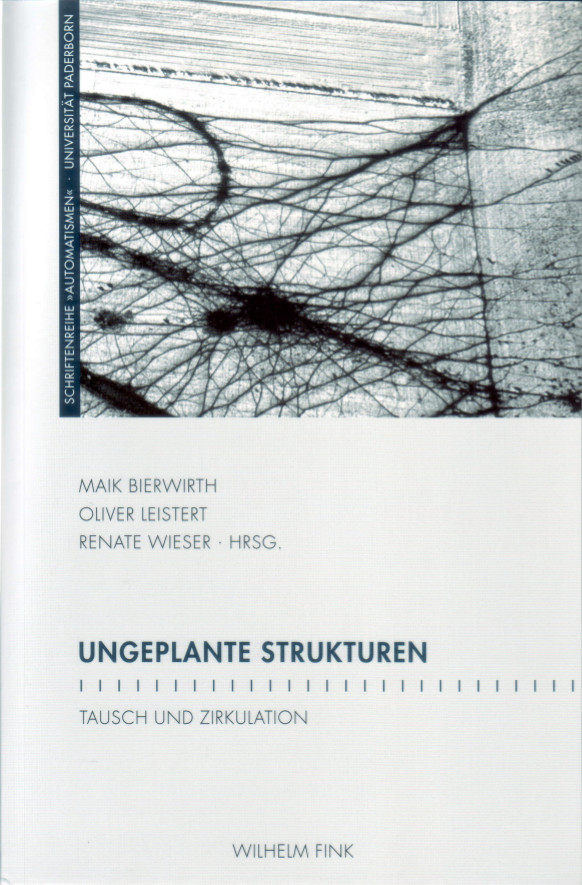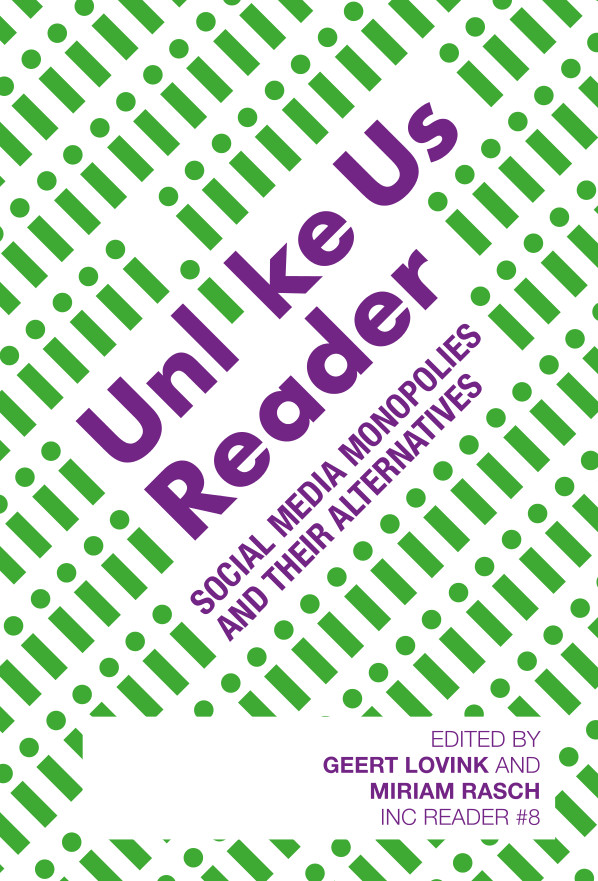Matthew Fuller, Andrew Goffey: Evil Media (2012)
Filed under book | Tags: · algorithm, art, artificial intelligence, business, code, computing, data, database, event, governance, information, interaction, interface, knowledge, labour, language, machine, management, market, media, media theory, memory, military, networks, philosophy, political theory, politics, power, programming, software

“Evil Media develops a philosophy of media power that extends the concept of media beyond its tried and trusted use in the games of meaning, symbolism, and truth. It addresses the gray zones in which media exist as corporate work systems, algorithms and data structures, twenty-first century self-improvement manuals, and pharmaceutical techniques. Evil Media invites the reader to explore and understand the abstract infrastructure of the present day. From search engines to flirting strategies, from the value of institutional stupidity to the malicious minutiae of databases, this book shows how the devil is in the details.
The title takes the imperative “Don’t be evil” and asks, what would be done any differently in contemporary computational and networked media were that maxim reversed.
Media here are about much more and much less than symbols, stories, information, or communication: media do things. They incite and provoke, twist and bend, leak and manage. In a series of provocative stratagems designed to be used, Evil Media sets its reader an ethical challenge: either remain a transparent intermediary in the networks and chains of communicative power or become oneself an active, transformative medium.”
Publisher MIT Press, 2012
ISBN 0262304406, 9780262304405
235 pages
Review: Nicholas Holm (Media Int’l AU, 2013), Neural (2013).
Evil media on Monoskop wiki
PDF (updated on 2024-4-13)
HTML (added on 2015-8-28)
See also YoHa, et al., Evil Media Distribution Centre, 2013.
Comments (2)Maik Bierwirth, Oliver Leistert, Renate Wieser (eds.): Ungeplante Strukturen: Tausch und Zirkulation (2010) [German]
Filed under book | Tags: · media theory, networks, technology

“Durch Tausch, Zirkulation und Verhandlung entstehen Strukturen, die weder geplant noch vorhergesagt werden können. Hierbei spielt eine Vielzahl von Akteuren, Ereignissen und Orten zusammen, und dennoch mündet solches heterogene, verteilte Handeln in neue Institutionen, Werthierarchien, technische Entwicklungen oder Machtkonstellationen.
Der medien- und kulturwissenschaftliche Sammelband zeichnet Spuren dieser schwer erkennbaren Abläufe nach: Die kollektive Entwicklung der Wikipedia, der wechselseitige Austausch zwischen Mäzenin und Autor, oder die diskursive Produktion nationaler Stereotype sind drei der Themen, die in Hinblick auf diese Problemstellung untersucht werden. Die Beiträge zeigen unterschiedliche Zugänge zur Rekonstruktion ungeplanter Prozesse.”
Publisher Wilhelm Fink, Munich, 2010
Automatismen series
ISBN 9783770549887
256 pages
Geert Lovink, Miriam Rasch (eds.): Unlike Us Reader: Social Media Monopolies and Their Alternatives (2013)
Filed under book | Tags: · activism, art, facebook, floss, media theory, networks, open source, privacy, social media, web

The Unlike Us Reader offers a critical examination of social media, bringing together theoretical essays, personal discussions, and artistic manifestos. How can we understand the social media we use everyday, or consciously choose not to use? We know very well that monopolies control social media, but what are the alternatives? While Facebook continues to increase its user population and combines loose privacy restrictions with control over data, many researchers, programmers, and activists turn towards designing a decentralized future. Through understanding the big networks from within, be it by philosophy or art, new perspectives emerge.
Unlike Us is a research network of artists, designers, scholars, activists, and programmers, with the aim to combine a critique of the dominant social media platforms with work on ‘alternatives in social media’, through workshops, conferences, online dialogues, and publications. Everyone is invited to be a part of the public discussion on how we want to shape the network architectures and the future of social networks we are using so intensely.
Contributors: Solon Barocas, Caroline Bassett, Tatiana Bazzichelli, David Beer, David M. Berry, Mercedes Bunz, Florencio Cabello, Paolo Cirio, Joan Donovan, Louis Doulas, Leighton Evans, Marta G. Franco, Robert W. Gehl, Seda Gürses, Alexandra Haché, Harry Halpin, Mariann Hardey, Pavlos Hatzopoulos, Yuk Hui, Ippolita, Nathan Jurgenson, Nelli Kambouri, Jenny Kennedy, Ganaele Langlois, Simona Lodi, Alessandro Ludovico, Tiziana Mancinelli, Andrew McNicol, Andrea Miconi, Arvind Narayanan, Wyatt Niehaus, Korinna Patelis, PJ Rey, Sebastian Sevignani, Bernard Stiegler, Marc Stumpel, Tiziana Terranova, Vincent Toubiana, Brad Troemel, Lonneke van der Velden, Martin Warnke and D.E. Wittkower.
Publisher Institute of Network Cultures, Amsterdam, February 2013
INC Reader #3
Creative Commons BY-NC-SA 3.0 Unported License
ISBN 9789081857529
386 pages
via Anne Helmond
book trailer
research network
next conference (22-23 March 2013, Amsterdam)
publisher
PDF
View online (Issuu.com)

